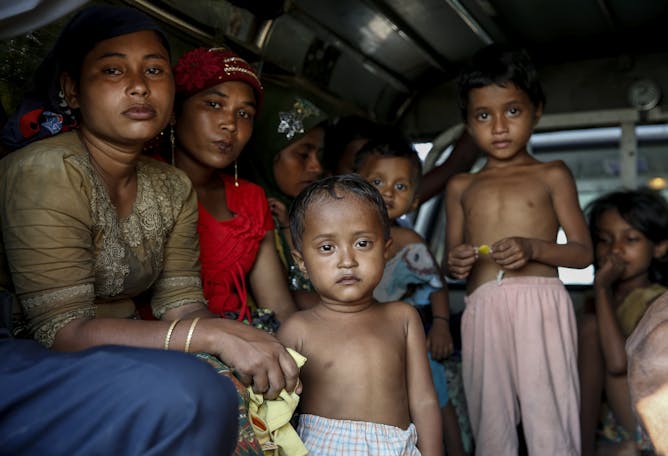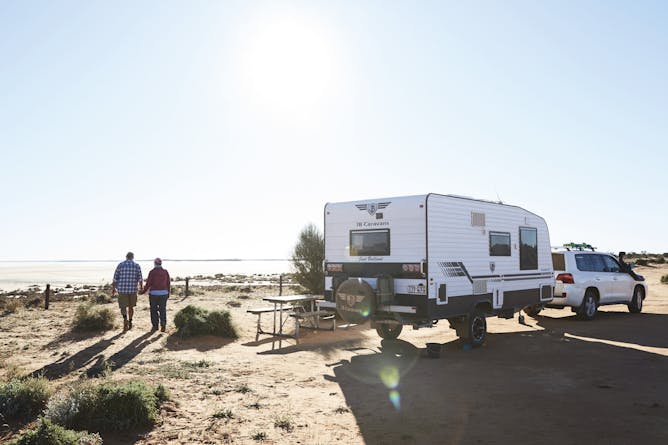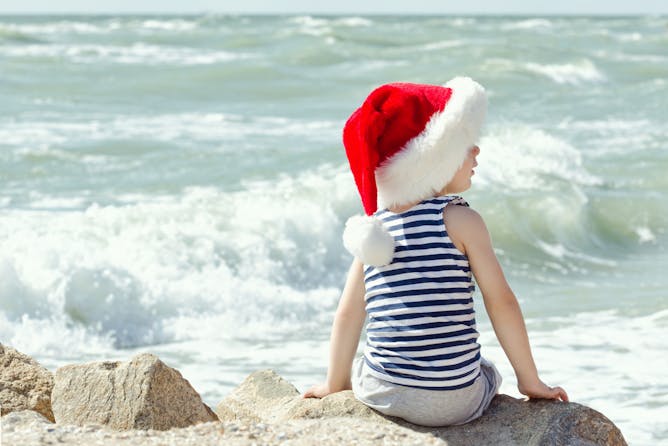|
|
|
Editor's note
|
|
As 2018 draws to an end, I’d like to thank you for reading The Conversation in 2018 and ask that you make a donation so we can continue to make our trusted content from academic experts free to read and republish.
At a time when trust in institutions and experts experts is waning, The Conversation is fighting back. We are a journalism project that aims to serve society, working with academics and researchers who are drawing on deep expertise to rebuild trust and inform the public.
We are driven by values of civility and respect. We want to create a public discourse that helps us be better, rather that one that plays to our worst instincts.
It’s a unique Australian idea that is so compelling it has spread across the world. Teams of Conversation editors and now working in Australia, UK, France, Spain, Canada, Africa, the US, Indonesia and New Zealand. Others are lining up to become part of this global movement of sharing expertise more widely.
So far in 2018 more than 6,700 people have made donations to help keep The Conversation’s public interest journalism free. We’d like to reach 7,000 before the end of the year. If you value what we do please make a donation.
|
|
|
Top stories
|

Rohingya women and children being moved on a truck south of Yangon, Myanmar.
AAP/EPA/Lynn Bo Bo
Louise Chappell, UNSW; Elaine Pearson, UNSW
The issues that captured the world’s attention this year show the struggle to secure human rights is far from over.
|

Grey nomads are champions of a radical type of portable urbanism as they travel to far-flung places like Lake Ballard in Western Australia.
Image courtesy of Tourism Western Australia
Timothy Moore, Monash University
Grey nomads travel Australia because they have the desire and the means to do so. Could future generations end up following in their footsteps because they can no longer work and stay in one place?
|
|
|

If they ask, tell them the truth.
www.shutterstock.com
Sophie Heizer, The Conversation
Four out of five experts said no.
|
Business + Economy
|
-
Tony Wood, Grattan Institute
The government wants the power to break up power companies if they keep prices high. There's little to suggest it would achieve much.
|
|
Arts + Culture
|
-
Bronwen Neil, Macquarie University
The Parthenon has been seen as central to the history of Western civilisation. But the building has a troubled past that is somewhat at odds with our ideas of democratic values.
-
Ari Mattes, University of Notre Dame Australia
Some of the best examples of horror and fantasy genre films have emerged from Australia. Unfortunately, The School is not one of them.
|
|
Science + Technology
|
-
Yasmine Probst, University of Wollongong; Lauren Houston, University of Wollongong
Clinical trials can assess impact of a medication on a disease. The ideal design is 'blind' – when the researchers and participants do not know who is assigned to the different treatments.
-
Robert Merkel, Monash University
Both the Coalition and Labor agreed to new laws that will give law enforcement agencies the power to access encrypted systems.
-
Duncan Blake, University of Adelaide
If the Australian space industry is to grow and create thousands of jobs then we need new policy around satellites to meet the challenges involved.
|
|
Politics + Society
|
-
Michelle Grattan, University of Canberra
In the final sitting week for the year, the encryption bill was finally passed, and the Liberal Party changed its rules to prevent sitting prime ministers being toppled.
|
|
Health + Medicine
|
-
Vicki Flenady, The University of Queensland; Adrienne Gordon, University of Sydney; Caroline Homer, Burnet Institute; David Ellwood, Griffith University; Jonathan Morris, University of Sydney; Philippa Middleton, South Australian Health & Medical Research Institute
A Senate Report has put forward 16 recommendations to reduce rates of stillbirth in Australia targeting a 20% reduction in the rate within three years. We can do this by focusing on five practices.
|
|
| |
Featured jobs
|

|
University of Melbourne — Parkville, Victoria
|

|
University of Western Australia — Perth, Western Australia
|

|
St Vincent's Hospital Melbourne — Fitzroy, Victoria
|

|
University of Technology Sydney — Sydney, New South Wales
|
|
|
|
| |
| |
| |

|
| |
| |
| |
Featured events
|

|
The University of Sydney, Sydney, New South Wales, 2006, Australia — University of Sydney
|

|
Abercrombie St and Codrington St, Darlington, The University of Sydney, Sydney, New South Wales, 2006, Australia — University of Sydney
|

|
14-28 Ultimo Road, Ultimo, New South Wales, 2007, Australia — University of Technology Sydney
|
|
|
|
| |
| |
| |
| |
| |
|
|
|
|
|
|
|